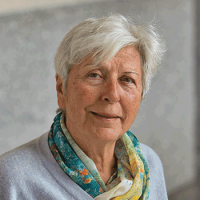Turkey’s Presidential Elections 2014 - What do they mean for Turkey’s democratization process, the Kurdish question and Turkey’s foreign policy?
Turkey’s Presidential elections in August 2014 offer an opportunity to evaluate the country’s progress under the rule of Mr. Erdogan for the past 12 years and to discuss Turkey’s political, economic and social transformations. One of the top priorities on Turkey’s political agenda is the Kurdish question and the peace effort with the PKK. Where does it stand today and how will it be impacted by recent domestic political developments in Turkey? As part of the discussion, speakers will also address the potential restructuring of the relationship between the new president and the parliament as well as the possibility of a new constitution and judicial reform. Finally, the panelists will take a look at Turkey’s foreign policy and its critical role in transforming regional conflicts.
The discussion features experts from the Turkish Economic and Social Studies Foundation (TESEV), the Middle East Institute (MEI) and the Woodrow Wilson Center.
The event is being co-hosted with the Friedrich Ebert Foundation (FES), the Turkish Economic and Social Studies Foundation and the Wilson Center's Middle East Program.
Speakers

Former Senior Research Associate and Head of the Middle East Program, Carnegie Endowment for International Peace
Hosted By

Global Europe Program
The Global Europe Program is focused on Europe’s capabilities, and how it engages on critical global issues. We investigate European approaches to critical global issues. We examine Europe’s relations with Russia and Eurasia, China and the Indo-Pacific, the Middle East and Africa. Our initiatives include “Ukraine in Europe”—an examination of what it will take to make Ukraine’s European future a reality. But we also examine the role of NATO, the European Union and the OSCE, Europe’s energy security, transatlantic trade disputes, and challenges to democracy. The Global Europe Program’s staff, scholars-in-residence, and Global Fellows participate in seminars, policy study groups, and international conferences to provide analytical recommendations to policy makers and the media. Read more


Middle East Program
The Wilson Center’s Middle East Program serves as a crucial resource for the policymaking community and beyond, providing analyses and research that helps inform US foreign policymaking, stimulates public debate, and expands knowledge about issues in the wider Middle East and North Africa (MENA) region. Read more
